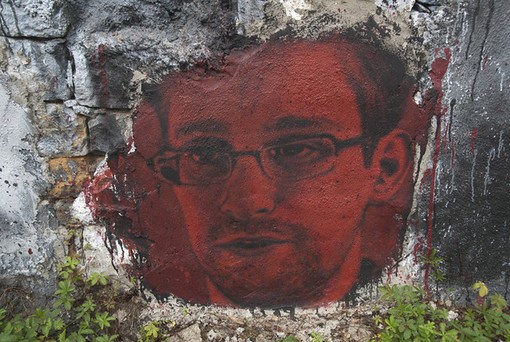
Photograph Source: thierry ehrmann – CC BY 2.0
The fortuitous emergence of a courageous whistleblower in the Trump White House and Harvard Professor Jill Lepore’s pathetically ill-informed review of Edward Snowden’s recent book, “Permanent Record,” are important reminders of the central and difficult role of whistleblowers in any successful effort to restore our democracy. The information provided by whistleblowers is key to the work of congressional oversight; investigative journalism; and informed political debate. Whistleblowers contributed to the knowledge of the crimes of the intelligence community during the Vietnam War and the exposure of Iran-contra, which led to the creation of intelligence oversight committees in the Congress and a statutory Inspector General at the Central Intelligence Agency, respectively.
The abuse of secrecy in the recent administrations of George W. Bush, Barack Obama, and Donald Trump and the safety of silence of most public servants creates a compelling reason for protecting the courage of a whistleblower. Obama, a Harvard-trained lawyer and former professor of constitutional law, made it particularly difficult for whistleblowers and displayed a stunning disregard for the separation of powers, which is currently being violated. He inexplicably contributed to the need for whistleblowers by weakening the traditional institutions for oversight in the national security process, the Office of the Inspector General. Obama left key vacancies at the CIA and the Department of State for long periods during his administration, and Trump has tried to reduce funding for IGs at the Department of Homeland Security, the Department of State, and the Environmental Protection Agency.
Lepore’s review of Snowden’s book in the current issue of the New Yorker is a typical example of the lack of support given to whistleblowers from the press and the public. In raising the false dichotomy of Snowden as either a “patriot” or a “traitor,” Lepore could have noted that, after leaving the Department of Justice, former attorney general Eric Holder referred to Snowden as a “public servant.” And in discussing Snowden’s decision to leave the country and to avoid “other avenues available for somebody whose conscience was stirred,” it should be noted that a prior whistleblower from the National Security Agency, Thomas Drake, did exactly that and the Obama administration outrageously used the Espionage Act against him. Lepore concludes that an “age of whistle-blowing…isn’t a sign of a thriving democracy,” but we will not have a thriving democracy without protection for whistleblowers.
The 1989 Whistleblower Protection Act, moreover, does very little to protect whistleblowers from condemnation and even reprisal. When I testified to the Senate intelligence committee in 1991 against the confirmation of Robert M. Gates as director of central intelligence, there were sworn affidavits from former colleagues at the CIA, who collaborated my testimony. Two of these colleagues, Carolyn Ekedahl and the late John Hibbits, testified to Gates’ manipulation of the intelligence process. As a result, they were not allowed to return to their offices in the directorate of intelligence and had to find an assignment outside of the directorate. Both Ekedahl and Hibbits were also immediately summoned for polygraph examinations in an effort to intimidate them and perhaps curtail their employment. ABC News reported that Ekedahl and Hibbits were told that their careers were “over” for contacting the Senate intelligence committee with comments critical of Gates.
Senator Warren Rudman (R-NH) even accused me and other Gates’ critics of “McCarthyism, pure and simple,” in a successful effort to stop additional CIA intelligence analysts from testifying against Gates. As a result, Senate intelligence committee chairman David Boren (D-OK) publicly praised the “courageous analysts” who cooperated with the committee and promised to intervene on their behalf “at the slightest hint of retribution.” I hope that the current chairman of the committee, Richard Burr (R-NC) issues his own support for the current whistleblower, but I would not be optimistic.
The sad fact is that Senator Boren could do nothing to protect the whistleblowers, and the 1989 Whistleblower Protection Act is no barrier to condemnation and even reprisal. When Republicans were in charge of the Senate intelligence committee, there were individuals who contacted congressional staffers with issues that required scrutiny, but they were warned that they would not receive a friendly reception from key committee members. The current whistleblower, moreover, has been ridiculed by the President of the United States as a “political person” carrying out a “political hack job,” and dismissed by Fox News as one of those “deep state people.”
It’s time for the congressional intelligence committees to step up and carry out its constitutional responsibilities. An obvious step would be for the Senate to fill its three seats on the Merit Systems Protection Board, which is charged with adjudicating reprisals against whistleblowers. Although ordinary whistleblowers in the government can go directly to congressional oversight committees, whistleblowers in the intelligence community require the approval of their particular Office of the Special Counsel or the Office of the Inspector General to do so. It will take an unusually courageous individual to act in the future in view of these various barriers in addition to the experience of the current whistleblower.